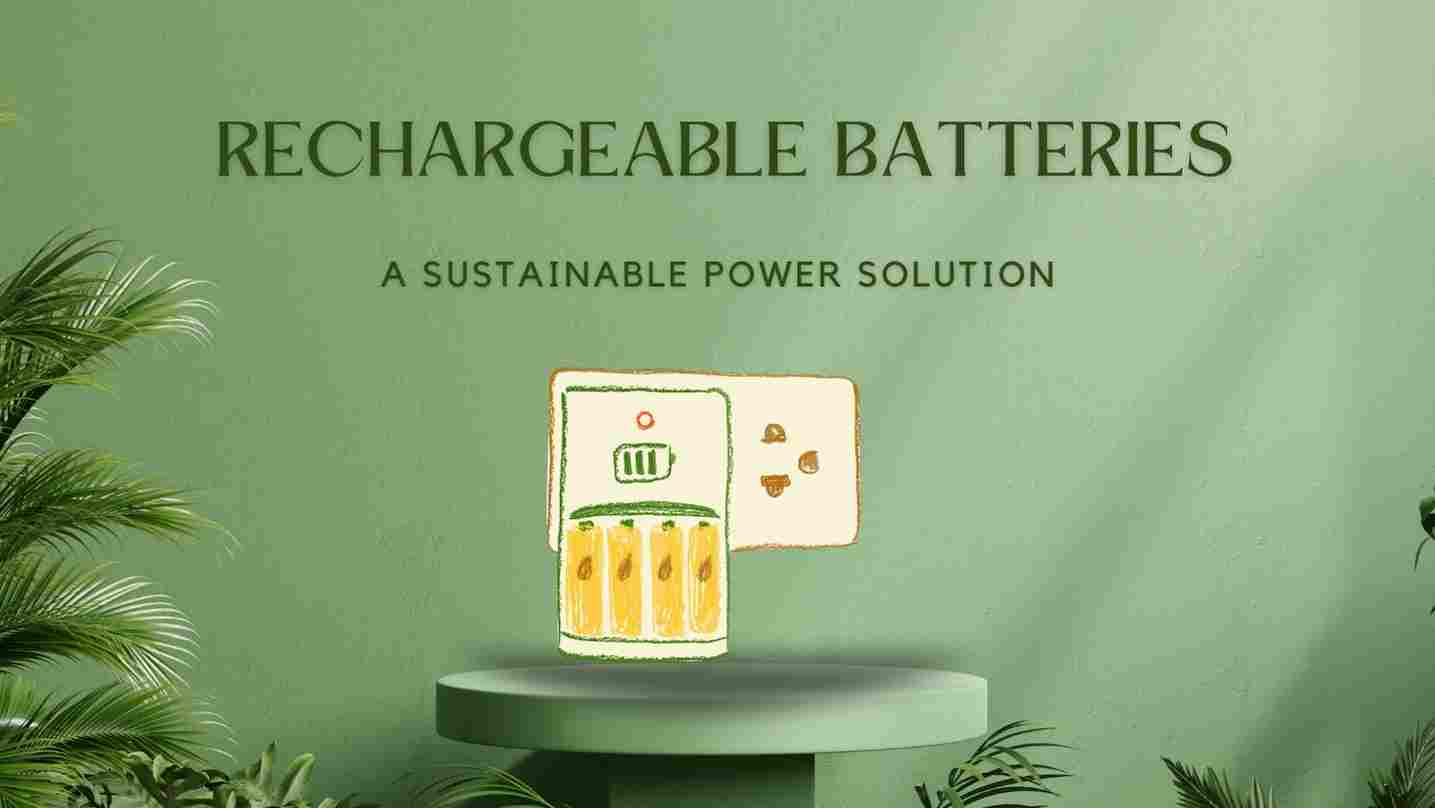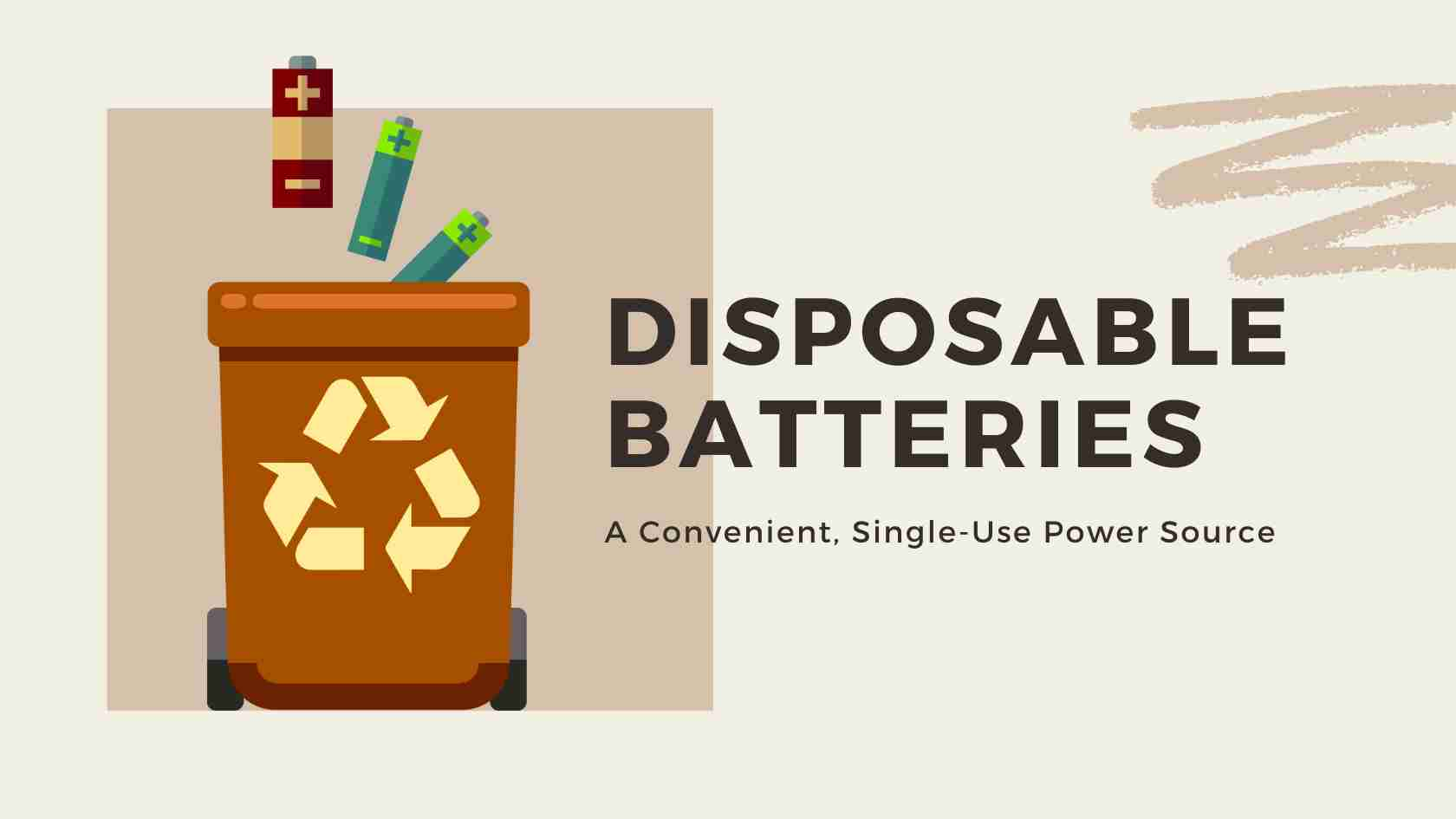As the demand for portable electronic devices grows, so does the need for reliable power sources. Batteries are the go-to solution for powering various devices, from flashlights to electric vehicles. The two main categories of batteries are rechargeable (secondary) batteries and disposable (primary) batteries. Understanding the differences between these two types of batteries is essential for businesses that require a steady supply of power for their products. In this article, we will explore the key differences between rechargeable and disposable batteries and help you make an informed decision for your business needs.
Rechargeable Batteries: A Sustainable Power Solution

Rechargeable batteries, also known as secondary batteries, can be used multiple times by recharging them after they have been depleted. The most common types of rechargeable batteries include lithium-ion batteries (Li-ion), nickel-metal hydride battery (NiMH), and nickel-cadmium (NiCad) battery.
Key Features of Rechargeable Batteries:
1. Long-term cost-effectiveness: Although rechargeable batteries have a higher initial cost, they can be recharged and reused multiple times, making them more cost-effective in the long run.
2. Environmental friendliness: Rechargeable batteries help reduce waste and pollution, as they can be used repeatedly and require fewer raw materials for production.
3. Higher capacity and longer run time: Rechargeable batteries generally have a higher energy density, which means they can store more energy in a smaller space and provide longer device run times.
4. Self-discharge: Rechargeable batteries lose a portion of their charge over time when unused. However, technological advancements have improved self-discharge rates, especially in NiMH batteries.
5. Memory effect: Some rechargeable batteries, particularly NiCd batteries, may suffer from the memory effect, a phenomenon where they lose their maximum capacity if they are not fully discharged before recharging. However, NiMH batteries have a much lower memory effect, making them a more reliable option for many applications.
Disposable Batteries: A Convenient, Single-Use Power Source

Disposable batteries, also known as primary batteries, are designed for one-time use and cannot be recharged. Common types of disposable batteries include alkaline batteries, zinc-carbon batteries, and lithium batteries.
Key Features of Disposable Batteries:
1. Lower initial cost: Disposable batteries have a lower upfront cost compared to rechargeable batteries, making them an attractive option for low-cost devices or those with infrequent use.
2. Convenience: Disposable batteries are widely available and can be used immediately without charging. This makes them a preferred choice for emergencies or devices requiring instant power.
3. Low self-discharge: Unlike rechargeable batteries, disposable batteries have a very low self-discharge rate, which allows them to maintain their charge for an extended period when not in use.
4. Limited energy capacity: Disposable batteries have a lower energy density than rechargeable batteries, so they may need to be replaced more frequently.
5. Environmental impact: The single-use nature of disposable batteries contributes to significant waste and pollution, making them less environmentally friendly than rechargeable batteries.
How to Choose the Right Battery for Your Business

When deciding between rechargeable and disposable batteries for your business, consider the following factors:
- Usage frequency: If your devices are used frequently or require high power, rechargeable batteries may be the more cost-effective and environmentally responsible choice.
- Budget: While rechargeable batteries have a higher initial cost, their ability to be reused makes them more cost-effective in the long run. However, if your budget is tight and you require a lower upfront cost, disposable batteries may be a suitable option.
- Availability of charging infrastructure: Rechargeable batteries require a charging system to replenish their power. If your business already has a charging infrastructure in place, or if you're willing to invest in one, rechargeable batteries may be a viable option.
- Environmental impact: If your business values sustainability and aims to minimize its environmental footprint, rechargeable batteries are a more eco-friendly choice.
- Power requirements: Assess the power requirements of your devices and choose the battery type that can provide the necessary energy density and run time.
Let Weijiang Power be Your Rechargeable Battery Supplier
We are a leading manufacturer of nickel-metal hydride (NiMH) rechargeable batteries. Our NiMH batteries come in a range of sizes, from AAA NiMH battery, AA NiMH battery, C NiMH battery, sub C NiMH battery, A NiMH battery, F NiMH battery, to D NiMH battery. We offer customized NiMH battery solutions based on your specific power, size, and usage requirements. All our batteries are rigorously tested to ensure safety, quality, and reliability. With over 13 years of experience in rechargeable battery manufacturing and a commitment to continuous innovation, we aim to deliver high-performance and cost-effective battery solutions to meet the needs of your business. Please contact us to learn more about our NiMH rechargeable battery products and how we can work with you.
Conclusion
Both rechargeable and disposable batteries have advantages and disadvantages, and the right choice depends on your business's specific needs, values, and budget. As a leading China NiMH battery factory, we offer high-quality NiMH batteries that are an excellent choice for businesses looking for a reliable, cost-effective, and environmentally friendly power solution. Contact us today to discuss your battery requirements and discover how our products can benefit your business in the overseas market.
Post time: Aug-24-2022





